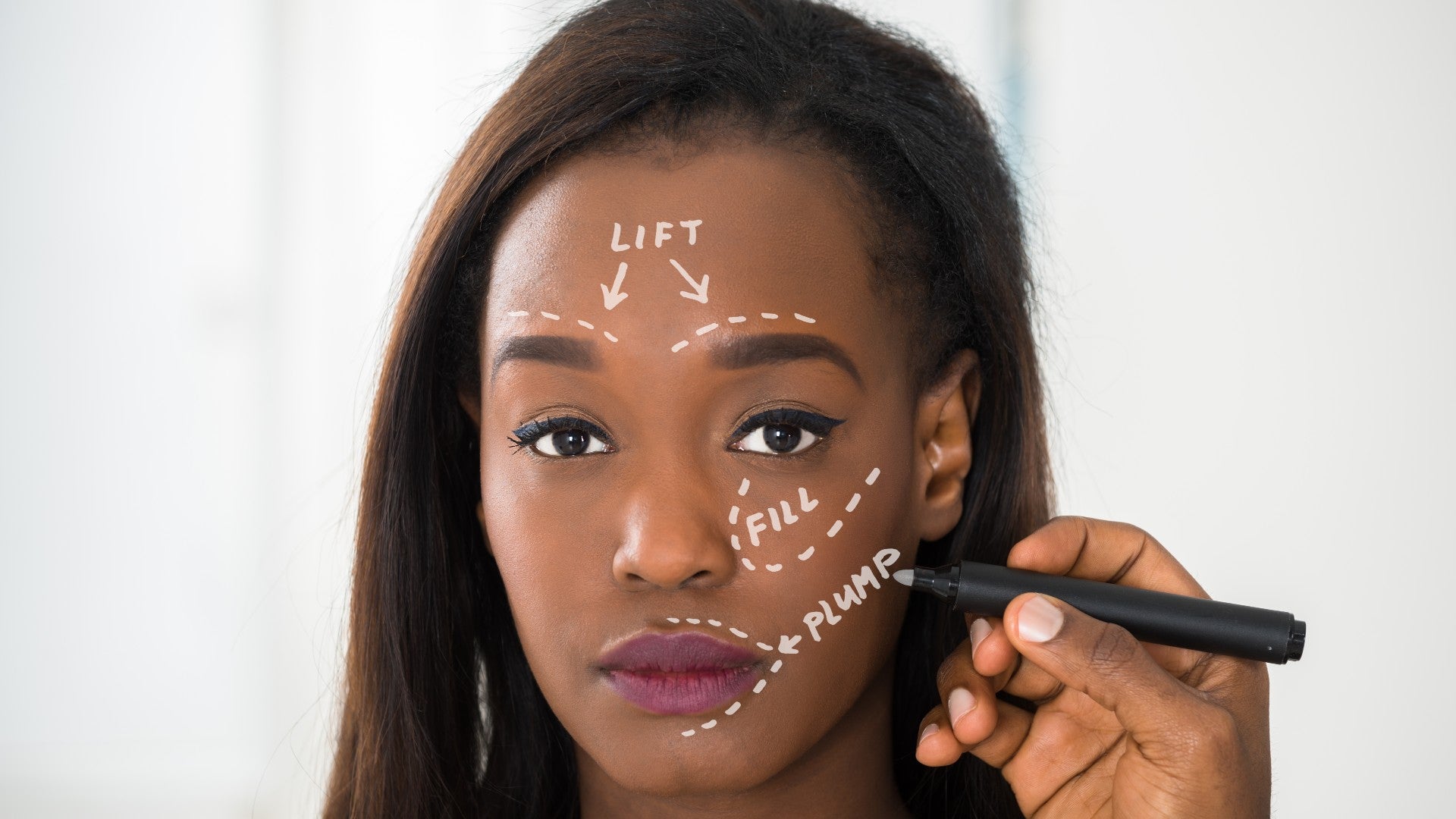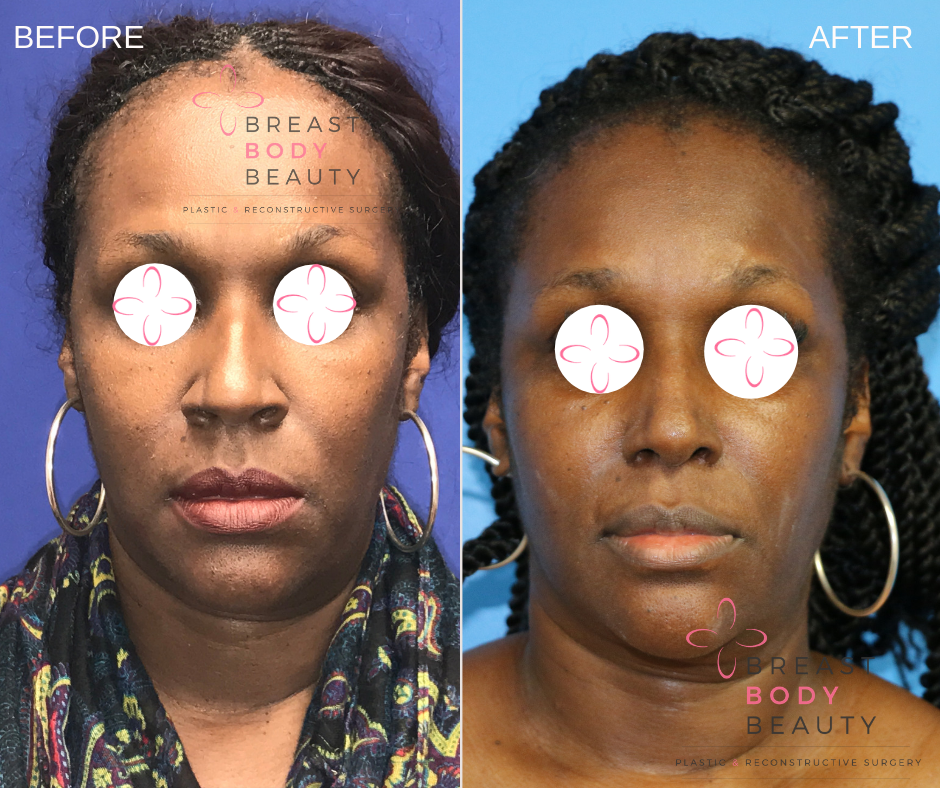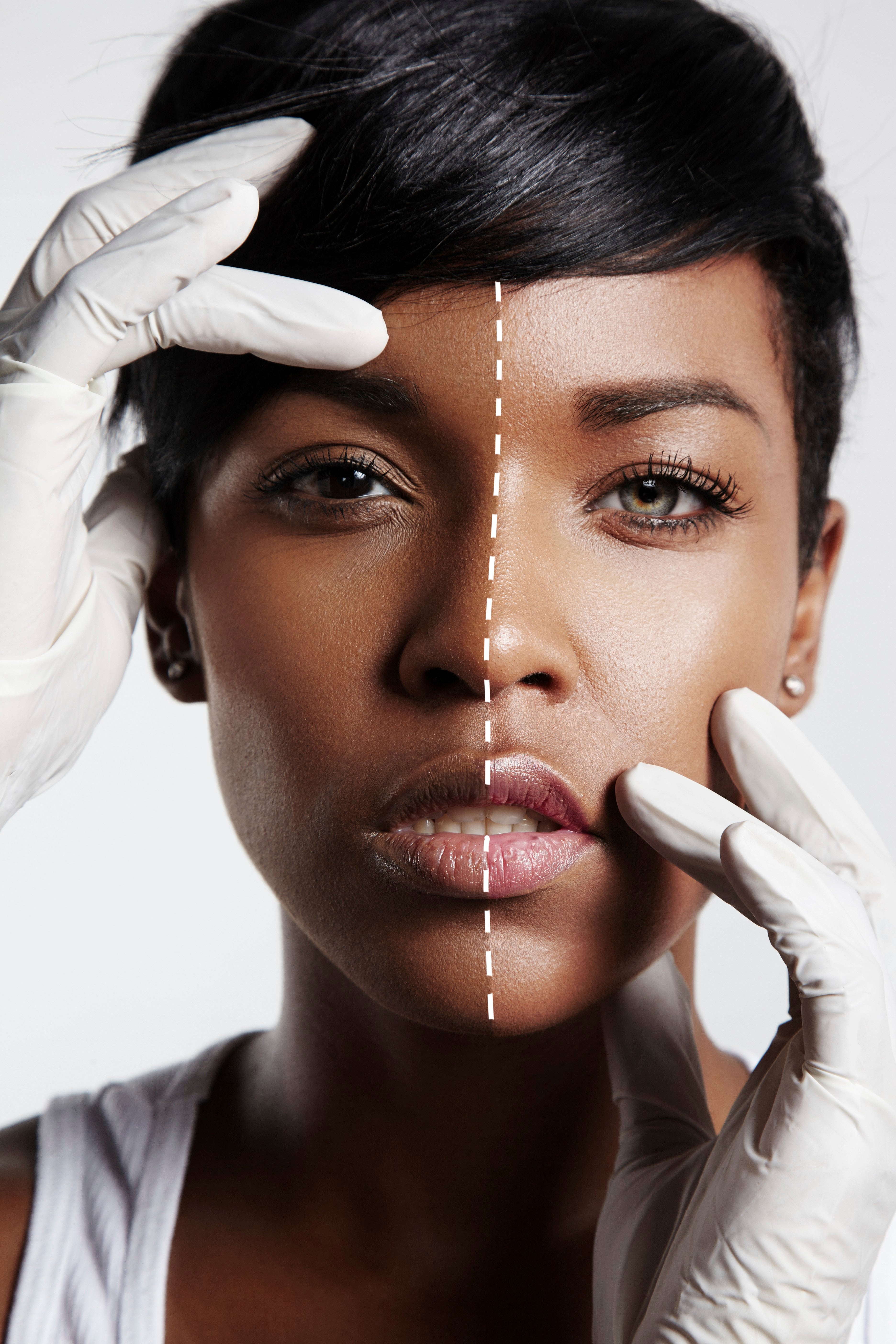
Cardi B recently posted photos on her Instagram stories of her massively swollen feet, a symptom she said she suffers from as a result of her plastic surgery whenever she flies.
Fans were empathetic, as the photos served as a reminder that plastic surgery is serious business with serious side effects.
Singer K. Michelle also documented her very real and very scary journey to remove the black market silicon injections she had put in her butt on Love & Hip Hop Hollywood. After she had several complications, including intense pain, the inability to walk or stand, migraines and fatigue, she had had enough.
It took four surgeries for her to get her back to a healthy body, and two emergency blood transfusions when she ran into surgical complications.

We’ve also seen several celebrities and reality stars who have undergone plastic surgery and are no longer recognizable. And shows like Botched on E! show us the real deal when it comes to plastic surgery gone wrong. But not everyone will have the opportunity to be fixed by Dr. Dubrow and Dr. Nassif, so if you’re electing to undergo plastic surgery you want to get it right the first time.
We consulted with two plastic surgeons, highly sought after Dr. Aisha Baron, a board-certified plastic and reconstructive surgeon practicing at Breast Body Beauty Plastic & Reconstructive Surgery in the metro Atlanta area, and Dr. Kerry-Ann Mitchell, a recent graduate of Keck Medicine at the University of Southern California, and a fellow in neuroplastic and reconstructive surgery at Johns Hopkins, to get their advice on what Black women (and pretty much everyone) should be asking before going under the knife.
Is this doctor a board-certified plastic surgeon?
A plastic surgeon is someone who finished medical school and completed several additional years (typically between 6-8) of training in plastic surgery. After that they become eligible to be board-certified. They then collect cases and sit before the American Board of Plastic Surgery—in some instances this can take about another year or two after training. A cosmetic surgeon is any surgeon who elected to get certified in cosmetic procedures, but may not have the extensive training specifically in plastics. They can often become certified in a shorter amount of time, and cannot call themselves plastic surgeons. Plastic surgeons almost never say they are cosmetic surgeons, they say they are plastic surgeons because there is a fundamental difference. Simply put, you wouldn’t go to a dermatologist to get a tooth extracted just because she’s a doctor and says that she can do it. Don’t do this with your plastic surgery either.
“And make sure that person who is board certified has privileges to operate at local hospitals. That’s another key tidbit of information that will tell you whether or not that person is truly board certified in plastic surgery,” said Dr. Baron. “If that person does not have privileges to operate at any hospitals, that might not be the doctor you need. What if something happens? What if there’s a complication? You should be able to go to a local hospital and have your doctor be able to come in and care for you. Those things are important.”
Is your surgeon experienced in working with Black bodies and faces?
Let’s talk about nose jobs. It’s crazy how Black people often get that same concave nose as a result of a rhinoplasty, even with several different surgeons performing the procedure. The nostrils look collapsed or the tip of the nose looks uncomfortably pinched. This is often the result of surgeons who either have little experience in working on Black faces, or surgeons who cannot diversify their work when it comes to these features. According to Dr. Baron, several years ago there was a big push on education on performing ethnic rhinoplasty and making sure that surgeons didn’t look to European standards of facial structure when performing these procedures. With the nose in particular it’s important. A rhinoplasty can change one’s entire look because the nose is such a prominent feature of the face.
“Most of the data and research that’s been done on how to make a beautiful nose is done on Caucasians. So if you are a surgeon and you’re thinking, okay, I have this patient and I’m trying to make a beautiful nose, your ideal is a Caucasian nose. If you’re not very well versed you’re probably not thinking I need to maintain this patient’s ethnicity. It’s okay for their nose to be a little bit wide, it’s okay for this person. You have to realize what is ideal for African American patients,” said Dr. Mitchell.
“If you’re looking to do a rhinoplasty and all the surgeons’ results look the same, then they do the same exact thing on everybody, and they may not be respecting the patient’s wishes if they desire to preserve their ethnic features. I think having a good dialogue with the patient really helps you understand what look they’re going for. I think going to a Black surgeon can maximize your chances of preserving those characteristics, but there are also good surgeons out there who aren’t Black that still do a great job with preserving these features and the desires of patients,” Dr. Baron added.

What is the actual cost of surgery?
One and done is not a thing in plastic surgery for most procedures. For many lifts and augmentations, time and aging will cause the need for a tune up. Breasts implants specifically need to be changed around the ten-year mark. And when it comes to down time, you can’t skimp on the healing. If you work a desk job, you could be back to work two weeks later, but if you work a physical job or will be running around with the little ones once you’re home, it’s typically more like four to six weeks down time. If you’re paid hourly or per diem that could mean missing out on a lot of coins.
“Make sure you have the funds, and that you’re not going broke trying to get surgery to look good. It just needs to be done financially responsibly,” Dr. Baron explained. “Most of my patients aren’t extremely wealthy, they’re regular middle class people, and they just budget. They say, ‘okay, I may not take an expensive trip or that big family trip this year, I’ll take it next year after I have my new body.’”
Dr. Baron also said that she saw the photos of Cardi B and she believes that the rapper didn’t take the proper time to heal. She had been flying, appearing at awards shows, rigorously performing, and possibly out of her compression garments too soon.
Are your expectations realistic?
Remember all those episodes of MTV’s True Life where people went overboard on plastic surgery chasing a dream to be the doppelganger of their favorite celebrity? It’s scary but happens, and also happens on a lesser obsessive scale. But according to our experts, you must manage your expectations because surgery will enhance your features, but perfection is unattainable. Also, diet and exercise are still recommended for patients undergoing body contouring and liposuction to minimize risks and manage a healthy lifestyle post-surgery.
“People come in and they think they’re going to get something, and they’re likely not going to get that. I think managing expectations and being clear with what you’re getting [is important]. If you come in and say, ‘I want Cardi B’s butt,’ but you’re square-shaped, that’s not really going to happen. I can make it bigger and I can contour you better for your body, but you probably still will not look like Cardi B,” said Dr. Mitchell.
Are you getting plastic surgery for the right reasons?

The choice to undergo plastic surgery is yours, and only yours to make. And our experts recommend that you take inventory of that when deciding if it’s the right option for you. There are some results that can only be achieved with surgery (like the removal of excess skin after massive weight loss). They warn against going under the knife because of a bad breakup, or because you feel pressure to look a certain way to land a job. Surgery can change your looks, not your life.
“I do feel like people tend to think of plastic surgery as, ‘Oh, it’s just something simple.’ No matter how you spin it, it’s surgery. Every time you do a surgical procedure you need to do your research and you need to see it’s right for you or if it’s a risk you’re willing to accept,” said Dr. Mitchell. “The biggest benefit is usually the psychological benefit for that person. They feel better. They feel more beautiful, they feel more confident. If it’s something that bothers them significantly and that they’re willing to have general anesthesia, have [the procedure] done, and undergo the recovery, then it’s worth it.”
